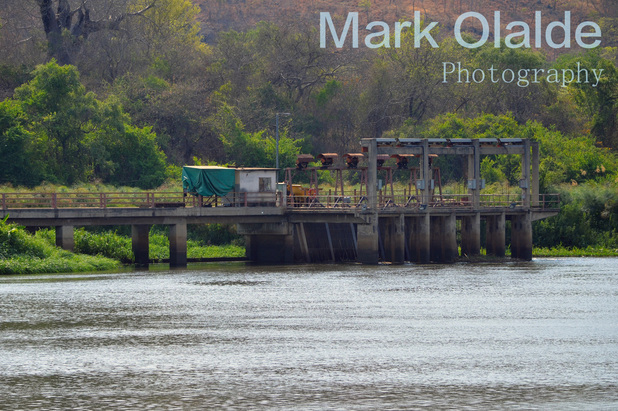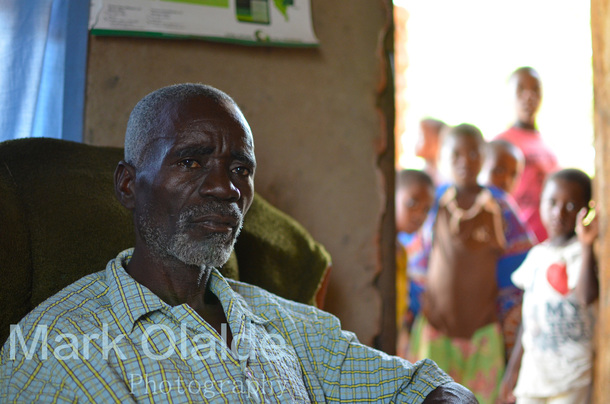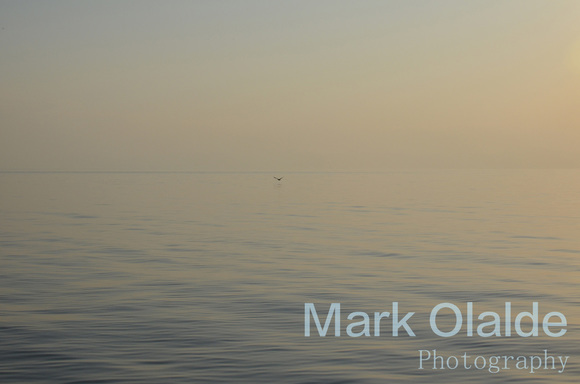Eta,
“The water comes from God,” Chief Chikhawo explains from his scratchy and broken armchair. He is one of several chiefs in Chikhawo Village , a poverty-stricken community just outside the capital of Lilongwe in Malawi.
The chief pauses, then clarifies with a laugh: "It's rainwater." I was interviewing him during a two-week reporting stint in Malawi, where I was chasing a complicated story of the interplay among ambitious irrigation plans, a country reliant on hydropower, and an ancient lake experiencing falling water levels.
Here's the story: Malawi is in the midst of a large-scale irrigation project called the Green Belt Initiative that is guaranteed to have a massive -- potentially good, potentially bad -- impact on the country. Lake levels are already falling, and some scientists predict that drawing more water away from the lake could drop lake levels to a point where the Shire River would dry up. The Shire handles all the lake's outflow, and nearly all of the country's electricity comes from hydropower plants on the river. This conflict is escalating with nutrient loading, a warming lake, fish die-offs, increasingly severe weather events, and food shortages.
I stumbled onto the story by accident while a world away, attending a journalism institute about Lake Superior. During an American scientist's lecture at the conference put on by the (awesome) Institute for Journalism & Natural Resources (IJNR.org), he told a fascinating story about Malawi (sidenote: the open bar had nothing to do with the following decision...). As tends to happen, I figured that South Africa and Malawi are (really not) close enough that I should go to both. So, a few weeks later, I bought a plane ticket to Malawi.
According to World Bank data, Malawi is the world's poorest country. My reporting in Malawi both added credence to that, as well as taught a lesson about why journalists should plan ahead. I landed in the country, alone and unprepared but very much believing the story was an important one. The next two weeks saw me crisscross much of the country in a beat-up, old Toyota Starlet, which needed a lifesaving infusion of air daily in a patched up rear tire. I saw a dusty countryside, often largely stripped of trees; street corners populated with beggars missing limbs; bicycles everywhere as substitutes for cars; billboards imploring the population to halt the rampant murders of people with Albinism; men on the roadside who would hold up a pair of pants all day to sell it for a pittance; and large numbers of ex-pats due to the reliance on them in NGOs, aid organizations, and in some cases even the government.
In February, I published my first piece on the topic with the Oxpeckers Center for Investigative Environmental Journalism (story here: http://oxpeckers.org/2016/02/2450/).
Here are some facts to frame the story:
~~Lake Malawi is millions of years old and is believed to host more fish species -- somewhere around 1,000 -- than any other lake on earth.
~~In December, Lake Malawi reached its lowest recorded surface level since 1997.
~~According to the Department of Irrigation, there are 104,000 hectares already irrigated in the country. The department identifies about four times as much irrigable land (that's about 23 times the land area of Washington, D.C.).
~~The first hydropower plant in line on the Shire River -- Nkula A -- operated at only 60 to 65 percent of its capacity for parts of last year because of low flow on the Shire.
~~Large amounts of foreign money are involved in Malawian aid and infrastructure, including a $350.7 million investment from a U.S. tax-payer funded group called the Millennium Challenge Corporation, for which Congress appropriates money to be given as aid. This particular investment is in energy infrastructure and fixing up parts of Nkula.
When I toured Nkula A and B, I was asked not to take photos inside the power stations, but what I found was a mess. Commissioned in 1966, Nkula A was missing floor and ceiling tiles, its control room was archaic, and a sheet of paper with the words “NOT TO BE OPERATED” scrawled on it covered some controls.
“The water comes from God,” Chief Chikhawo explains from his scratchy and broken armchair. He is one of several chiefs in Chikhawo Village , a poverty-stricken community just outside the capital of Lilongwe in Malawi.
The chief pauses, then clarifies with a laugh: "It's rainwater." I was interviewing him during a two-week reporting stint in Malawi, where I was chasing a complicated story of the interplay among ambitious irrigation plans, a country reliant on hydropower, and an ancient lake experiencing falling water levels.
Here's the story: Malawi is in the midst of a large-scale irrigation project called the Green Belt Initiative that is guaranteed to have a massive -- potentially good, potentially bad -- impact on the country. Lake levels are already falling, and some scientists predict that drawing more water away from the lake could drop lake levels to a point where the Shire River would dry up. The Shire handles all the lake's outflow, and nearly all of the country's electricity comes from hydropower plants on the river. This conflict is escalating with nutrient loading, a warming lake, fish die-offs, increasingly severe weather events, and food shortages.
I stumbled onto the story by accident while a world away, attending a journalism institute about Lake Superior. During an American scientist's lecture at the conference put on by the (awesome) Institute for Journalism & Natural Resources (IJNR.org), he told a fascinating story about Malawi (sidenote: the open bar had nothing to do with the following decision...). As tends to happen, I figured that South Africa and Malawi are (really not) close enough that I should go to both. So, a few weeks later, I bought a plane ticket to Malawi.
According to World Bank data, Malawi is the world's poorest country. My reporting in Malawi both added credence to that, as well as taught a lesson about why journalists should plan ahead. I landed in the country, alone and unprepared but very much believing the story was an important one. The next two weeks saw me crisscross much of the country in a beat-up, old Toyota Starlet, which needed a lifesaving infusion of air daily in a patched up rear tire. I saw a dusty countryside, often largely stripped of trees; street corners populated with beggars missing limbs; bicycles everywhere as substitutes for cars; billboards imploring the population to halt the rampant murders of people with Albinism; men on the roadside who would hold up a pair of pants all day to sell it for a pittance; and large numbers of ex-pats due to the reliance on them in NGOs, aid organizations, and in some cases even the government.
In February, I published my first piece on the topic with the Oxpeckers Center for Investigative Environmental Journalism (story here: http://oxpeckers.org/2016/02/2450/).
Here are some facts to frame the story:
~~Lake Malawi is millions of years old and is believed to host more fish species -- somewhere around 1,000 -- than any other lake on earth.
~~In December, Lake Malawi reached its lowest recorded surface level since 1997.
~~According to the Department of Irrigation, there are 104,000 hectares already irrigated in the country. The department identifies about four times as much irrigable land (that's about 23 times the land area of Washington, D.C.).
~~The first hydropower plant in line on the Shire River -- Nkula A -- operated at only 60 to 65 percent of its capacity for parts of last year because of low flow on the Shire.
~~Large amounts of foreign money are involved in Malawian aid and infrastructure, including a $350.7 million investment from a U.S. tax-payer funded group called the Millennium Challenge Corporation, for which Congress appropriates money to be given as aid. This particular investment is in energy infrastructure and fixing up parts of Nkula.
When I toured Nkula A and B, I was asked not to take photos inside the power stations, but what I found was a mess. Commissioned in 1966, Nkula A was missing floor and ceiling tiles, its control room was archaic, and a sheet of paper with the words “NOT TO BE OPERATED” scrawled on it covered some controls.
(As is evident in this rambling post) I am finding a story such as this one quite difficult to write properly. A complex interplay of variables (irrigation, energy production, climate change), no clear "good guy/outcome" vs. "bad guy/outcome", and the lack of celebrity characters provide unique challenges. In addition, how do I come to a country full of absolute poverty and write a simple "here are the country's environmental concerns" story?
Example 1: Rural Malawians strip the landscape of trees because many people have little or no access to electricity for cooking or warmth. I spoke to Malawians who fully understood the issue of deforestation but said that without a reliable energy sources they had no other choice but to burn wood.
Example 2: Irrigation has obvious environmental consequences for Lake Malawi, but NGOs also say implementing irrigation is the most efficient way to assist rural Malawians.
Example 3: To increase reliability of the country's hydropower, irrigation and near-shore agriculture would have to disappear. So do you choose electricity or agriculture? Food or warmth?
I am still working to untangle this story and publish more articles from my time in Malawi, and I have a feeling that I will be back to continue this work. As always, thanks for taking the time to slog through my work.
Tiamwere ('Cheers' or 'the drinks are on you' in the Chichewa language),
Mark
Example 1: Rural Malawians strip the landscape of trees because many people have little or no access to electricity for cooking or warmth. I spoke to Malawians who fully understood the issue of deforestation but said that without a reliable energy sources they had no other choice but to burn wood.
Example 2: Irrigation has obvious environmental consequences for Lake Malawi, but NGOs also say implementing irrigation is the most efficient way to assist rural Malawians.
Example 3: To increase reliability of the country's hydropower, irrigation and near-shore agriculture would have to disappear. So do you choose electricity or agriculture? Food or warmth?
I am still working to untangle this story and publish more articles from my time in Malawi, and I have a feeling that I will be back to continue this work. As always, thanks for taking the time to slog through my work.
Tiamwere ('Cheers' or 'the drinks are on you' in the Chichewa language),
Mark



 RSS Feed
RSS Feed
